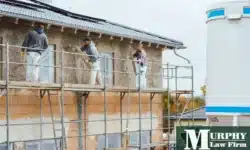How to file for workers’ compensation if you’re injured on a college or university campus
In Montana, there are a number of college and university campuses, including:
- Montana State University (Bozeman, Billings and Havre campuses)
- University of Montana (Missoula and Dillon campuses)
- Montana Technological University
- Dawson Community College
- Flathead Valley Community College
- Miles Community College
- Carroll College
- University of Providence
- Rocky Mountain College
- Apollos University
Along with 4-year universities, there are also several 2-year colleges, such as:
- City College at Montana State University Billings
- Gallatin College Montana State University
- Great Falls College Montana State University
- Missoula College University of Montana
- Helena College University of Montana
- Highlands College of Montana Tech
Additionally, there are also several tribal colleges located in the state of Montana.
In Montana’s university system alone, there are approximately 8,500 full-time employees.
When one of these employees gets hurt, they often have questions about if and how they can be compensated.
Common injuries on college campuses
When it comes to working on a college campus, workers may face a variety of dangers that could result in injury or illness.
Among the most common dangers is exposure to toxins such as fumes, moisture damage, mold, vermin, pests or excessive dirt or dust. Workers may ingest, inhale or absorb toxins through the skin. The side effects may be immediate or it may take time before symptoms appear.
Common symptoms of exposure to toxins include:
- Severe headaches
- Skin rashes
- Bloody noses
- Blurry vision
- Stomach cramps
- Nausea
- Difficulty concentrating or focusing
- Ear, throat and nose infections
- Depression
- Anxiety
- Difficulty sleeping
- Infertility
- Cancer
College staff and faculty may also be exposed to other dangers, such as punctures, cuts or burns. For instance, maintenance workers and grounds crew may be at risk for electrical shock, falls from heights, burns and lacerations.
Heartburn Medication Injury: Proton Pump Inhibitors and Potential Side Effects
Heartburn medications can lead to heart attacks, strokes, kidney damage and more. Learn how to recover compensation if you’ve been affected.
Are university employees covered by Montana workers’ compensation?
In Montana, most workers are protected under a no-fault system that provides coverage for medical treatment and compensation for lost wages. This means that regardless of who may be at fault for an occupational injury or illness, workers are still entitled to receive workers’ compensation benefits.
However, in order to obtain workers’ compensation, staff and faculty need to demonstrate that their injury or illness is a direct result of their occupational duties.
What to do after a work injury or accident
The first step a worker should take when injured is to report the injury to their immediate supervisor right away. In Montana, injured workers are required to file a report with their employer within 30 days of the incident. Failure to report an injury or illness within that timeline may mean that you aren’t able to obtain workers’ compensation benefits.
As part of filing the report, the employee will need to let their employer know exactly what happened. It’s imperative you obtain as much information as possible to include in this report. Once this notification has been made, you should file a workers’ compensation claim to begin the process of receiving coverage for lost wages and medical treatment.
Once an injury is reported to your employer, you may be given a list of pre-approved healthcare providers to obtain medical treatment. Beware that this list may attempt to minimize the severity of the injury as well as the necessary treatment required. You have the right to seek out your own doctor for a second opinion.
Montana workers’ compensation benefits
Under Montana workers’ compensation laws, injured workers may be able to receive benefits such as medical benefits, lost wages and disability benefits. In order to receive those benefits. However, first your claim will need to be approved.
Workers who are temporarily unable to work may be entitled to receive two-thirds of their average weekly wage up to a specific maximum. Other benefits to which an injured worker may be entitled include:
- Funeral costs. In the event an employee experiences a fatal accident, benefits would be provided to the family through workers’ compensation.
- Medical treatments. Workers’ compensation benefits can also assist in paying for medical treatments for workers who develop occupational illnesses due to exposure to dangerous substances and chemicals.
- Disability benefits. In the event that a worker suffers an illness or injury that is so severe they are unable to return to work for an extended period of time, they may be able to receive disability benefits.
- Ongoing care. If an injured worker requires long-term treatment—such as physical therapy—this treatment may be covered by workers’ compensation.
- Permanent disability. In the event that an injured worker isn’t able to return to work in any capacity due to the extent of their injury or illness, they may be entitled to receive permanent disability benefits.
Appealing a denied workers’ compensation claim
Even though a staff or faculty member may have been injured while on campus, there are no guarantees that they will receive benefits through workers’ compensation. It’s not unusual for claims to be denied.
If your claim is denied or if you’re not satisfied with the decision regarding a claim, it’s possible to file an appeal. In such instances, it’s a good idea to consult a Montana workers’ compensation attorney who can review the relevant information and assist with filing an appeal.





